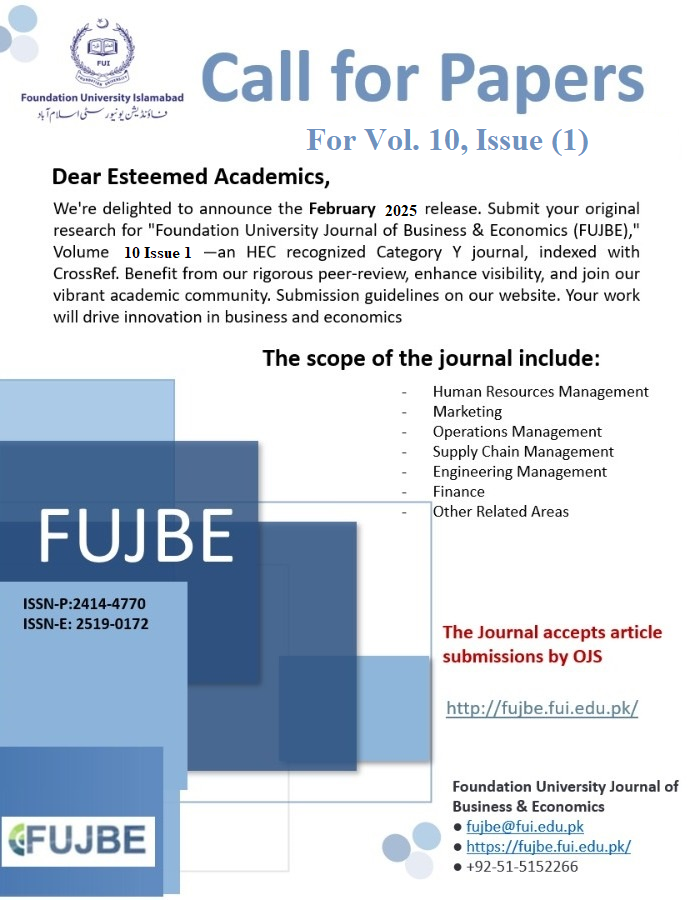Consumer Behaviour towards Social Media under COVID-19: A Multi-Study Evidence from Pakistan
DOI:
https://doi.org/10.33897/fujbe.v7i2.677Keywords:
Consumer beliefs; Social media advertising; Consumer attitudes; Behavioral intentions; Resilience Towards Negative Information.Abstract
The purpose of the study is to investigate the underlying mechanism between the relationship of consumers'
beliefs (in terms of credibility, invasiveness, and infotainment), behavioral intentions [in terms of electronic
word of mouth (e-WOM) and purchase intentions] and resilience towards negative information (RNI). We
propose that these relationships are sequentially mediated by consumers' perceived social media advertising
value (PSMAV) and their attitudes towards social media advertising (CATSMA). We report the results based
on two studies. For study 1 (pre- COVID-19), we draw on survey evidence from 673 active users of social
media (comprising of students & professionals) in Pakistan. For study 2 (post COVID-19), we draw on a
usable sample of 263 respondents of similar demographics. Data are analyzed using variance-based
structural equation modeling. Results of study 1 reveal that the relationships of infotainment and credibility
with behavioral intentions are positive and partially mediated by the sequence of PSMAV and CATSMA.
However, the relationship between invasiveness and behavioral intentions is negative and fully mediated by
the sequence of PSMAV and CATSMA. For study 2, for both infotainment and credibility; PSMAV and
CATSMA sequentially mediate the relationship between these belief constructs and RNI. For invasiveness,
this sequential mediation remains ineffective. Consumer attitudes also show a positive linkage with RNI. This
paper extends the extant literature by showing how (in a social media advertising context) consumers' beliefs
relate to consumers' behavioral intentions and how positive attitudes formulate a higher RNI. Furthermore,
we advance the literature by drawing on evidence from an under-researched context of Pakistan that has
experienced dynamic changes during the pandemic era.



